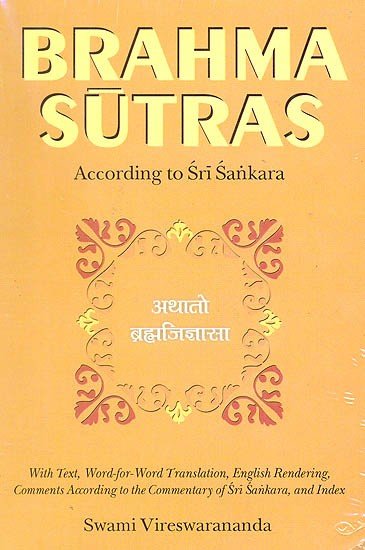Brahma Sutras (Shankara Bhashya)
by Swami Vireshwarananda | 1936 | 124,571 words | ISBN-10: 8175050063
This is the English translation of the Brahma-sutras including the commentary (Bhashya) of Shankara. The Brahma-sutra (or, Vedanta-sutra) is one of the three canonical texts of the Vedanta school of Hindu philosophy and represents an early exposition the Vedantic interpretation of the Upanishads. This edition has the original Sanskrit text, the r...
Chapter IV, Section I, Adhikarana XIV
Adhikarana summary: On the exhaustion of Prarabdha work through enjoyment the knower of Brahman attains oneness with It
Sutra 4,1.19
भोगेन त्वितरे क्षपयित्वा संपद्यते ॥ १९ ॥
bhogena tvitare kṣapayitvā saṃpadyate || 18 ||
bhogena—By enjoyment; tu—but; itare—of the other two works; kṣapayitvā—having exhausted; saṃpadyate—becomes one (with Brahman).
19. But having exhausted by enjoyment the other two works (viz. good and evil works that have begun to bear fruit), (he) becomes one (with Brahman).
The opponent argues that even as a knower of Brahman sees diversity while living, so also even after death he will continue to see diversity; in other words, he denies that the knower of Brahman attains oneness with Brahman at death. This Sutra refutes it and says that the Prarabdha works are destroyed through fruition, and though till then the knower of Brahman has to be in the relative world as a Jivan-mukta, yet when these are exhausted by being worked out, he attains oneness with Brahman at death. He no longer sees any diversity, owing to the absence of any cause like the Prarabdha, and since all works including the Prarabdha are destroyed at death, he attains oneness with Brahman.
